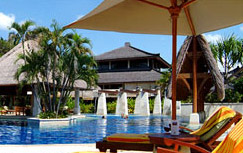Schedule 1: Member’s Basic Rights and Obligations: All bona fide members of the Association:
Shall be obliged to practice good business principals and to promote ethical corporate principles in areas of:
- Human Resource Development;
- Quality Service;
- Local Communities Participation;
- Labor and all other governing laws and:
- Submission of relevant information as may be required by established statutes, and own Articles of Association.
Shall be wholly entitled to all rights pertaining to service, assistance, interventions and/or information that this Association is in a position to obtain or provide, and expeditiously so.
Schedule 2: Our Governing Principles: All Members shall at all times strive:
- To Consciously promote responsible hospitality business and ethical values common and/or acceptable to the host Kenyan people and, to the extent that is harmonious to the hosts, their visitors;
- To observe and respect the social and cultural traditions and practices of all peoples, including those of minorities and indigenous peoples and to recognize their worth;
- To pursue activities harmonious with the attributes and traditions of the host regions and in respect for the established laws, practices and customs;
- To encourage host communities and local professionals to acquaint themselves with and respect the guests who visit them and find out about their lifestyles, tastes and expectations;
- To educate, train and impart stakeholders to contribute towards a hospitable business and transactions atmosphere;
- To motivate, empower and urge public authorities to provide protection for investors and guests and their belongings;
- To engage in effort to create harmonious co-existences for all residents and non-residents in host establishments;
- To undertake measures that bring safety of international tourists owing to the particular vulnerability they may have;
- To defend and preserve tourism facilities and all of elements of cultural or natural heritage ;
- To report, admonish and discourage any act considered criminal by the laws of Kenya;
- To abstain from any act or conduct felt to be offensive or injurious to the local populations, or likely to damage the local environment;
- To refrain from all trafficking in illicit drugs, arms, antiques, protected species and products and substances that are dangerous or prohibited by state law and regulations;
- To assist and/or incentivise tourists and visitors to carry a responsibility of acquainting themselves, before their departures and arrivals, with the characteristics of Kenya and her people;
Schedule 3: Towards a collective Focus, Values & Vision: All Members shall be committed to:
- Engage in continuous learning for effective, sustainable and modern business standards, particularly in collaboration with, and in support of, Kenya Utalii College and other tourism training institutions;
- Discourage sexual tourism or exploitation of human beings in any form, and especially when applied to children and the mentally or physically challenged persons;
- Encourage travel for purposes of religion, health, education, sports, conference, VFR and education or culture, so as to contribute in the campaigns to make Kenya the global ‘destination of choice’;
- Lobby for the introduction into the national and regional curricula of education about the value of tourist exchanges, their economic, social and cultural benefits and the unique attractions available within Kenya’s borders and;
- Promote solidarity with sister-nations in the East African region, in pursuit of common sharing our regional potential.
Schedule 4: In Pursuit of Economic Development: All Members shall endeavor:
- To safeguard the natural environment with a view to achieving sound, continuous and sustainable economic growth geared towards satisfying equitably the needs and aspirations of the present generations and posterity;
- To give credence and priority all forms of tourism development that are conducive to saving rare and precious resources, in particular water and energy;
- To avoid waste production, by campaigning for national, regional and local public authorities to adhere to environmental decency;
- To reduce the pressure of investments on the environment by observing environmental impact assessment studies, so as to enhance correlation and beneficial impact on the tourism industry and the local economy and;
- To protect the natural heritage composed of ecosystems and bio-diversity and to preserve endangered species of wildlife or protected areas;
Schedule 5: On Hosts’ heritage and prestige, Members shall recognise that:
- The tourism/hospitality product belongs to the common heritage of Kenyans; the communities in whose territories they are situated have particular rights, and obligations, on them and they, too, have a binding responsibility to make it thrive and flourish;
- Enacted policies and programs should be implemented with respect for the artistic, archaeological and cultural heritage of Kenya:- protection, preservation and upgrading of historic sites is critical and crucial;
- The intellectual and/or material financial resources derived from visits to cultural sites and monuments should, at least in part, be used for the upkeep, safeguard, development and embellishment of such heritage and;
- Investments in the sector should be planned in a way that goes in tandem with allowed traditional cultural products, crafts and folklore to survive and flourish, rather than causing them to degenerate;
Schedule 6: To spread the gains and challenges of their investments, Members shall ensure that:
- Sharing equitably in the economic, social and cultural benefits generated by, and particularly in the creation of direct and indirect jobs resulting from them is central;
- The planning and architectural approach to and operation of hotels, lodges, restaurants, camp sites, casinos, caterers and other resorts should aim to integrate, to the extent possible, the local dietary, economic and social fabric;
- Consequent to Article 2 above, where skills are relatively equal, priority should be given to local manpower;
- Transparent remittance of invoiced subscriptions in time, for effective running and coordination of members’ needs by the Association secretariat and;
- Fostering dialogue with the public sectors, civil society, organized labor unions and legitimate community-based groups is an indispensable principle of economic engagement.
Schedule 7: Entitlements to Capacity Building, and partnerships, for both employees and employers:
- The inalienable rights of fulltime, part-time and self-employed workers in the hospitality sector; the labor and trade laws and regulations should guide;
- The labor force at all levels has the right and the duty to acquire continuous training and;
- Partnership(s) and the retention of balanced relations between enterprises, labor unions, partner trade bodies, the public, governments, and local, regional and/or international for-profit, not-for-profit and charities should be harnessed, for the good of all parties involved;
Schedule 8: Implementation Schedule and Sustenance (direct and by implications) of KAHC Code of Ethics
- All enlisted members shall lead in the ratification, observance, implementation and promotion of the Ethics Code;
- The public and private stakeholders in tourism development should co-operate in the implementation of these principles and evaluate as well as monitor their impacting and effective application;
- The stakeholders in hotels, restaurants, lodges, camps, casinos, residential homes, caterers and other similar food and accommodation service providers shall recognize the role of and co-operate,- to the extent logically so -, with relevant partners organizations, like:
- Kenya Tourist Board,
- Kenya Utalii College,
- Universities,
- Tourism Development and Training and Catering Levy Trustees,
- Kenya Tourism Federation,
- Federation of Kenya Employers,
- Tourism Trust Fund and all
- Government of Kenya Organs, including Kenya Revenue Authority, Central Bureau of Statistics, Coast Development Authority and Hotels and Restaurants Authority, and Global Organizations including the World Tourism Organization and;
- Members of KAHC shall refer any question(s) or conflict arising from the application or interpretation of the KAHC Code of Ethics for conciliation by the Associations’ Committee on the same, which committee shall be composed of persons of integrity nominated by the Membership, and who may include such eminent non-members persons to share and/or partake in the spirit.
Schedule 9
The aforementioned Code of Ethics shall remain the spirit, and the guide for All Members at all times.
Schedule 10
All members shall promote Collective Vision, as KAHC pursues the Motto: Hosting Diversity




